Moving to Ottawa, Canada
Welcome to Ottawa: Where Nature Meets Next-Level Innovation.
Ottawa, the vibrant capital of Canada, uniquely blends the strengths of a thriving tech ecosystem, rich cultural heritage, and abundant green spaces into a lifestyle that appeals to both tech professionals and curious newcomers.
- As a global tech hub, Ottawa's National Capital Region is home to over 1,800 tech companies and more than 88,000 tech workers, giving it one of the highest concentrations of tech talent in North America.
- The city shines across sectors: software, communications technology, smart mobility, cybersecurity, digital health, aerospace, defence, and cleantech, supported by federal R&D facilities, universities, and organizations.
- Ottawa consistently ranks highly for its quality of life—notably ranked third highest in Canada and 19th globally by Mercer in 2019 Wikipedia. It is also praised for work‑life balance, having once been ranked first in Canada and sixth globally by Kisi Living in Ottawa.
- The city’s charm extends beyond work—it features more than 180 events and festivals each year, alongside access to parks, lakes, cultural institutions, and outdoor recreation Innovations of the World.
Together, these factors showcase a city that’s not only rich in opportunity but truly welcoming in character—making Ottawa an ideal relocation choice for both tech professionals and lifestyle seekers.
2. Lifestyle and Culture
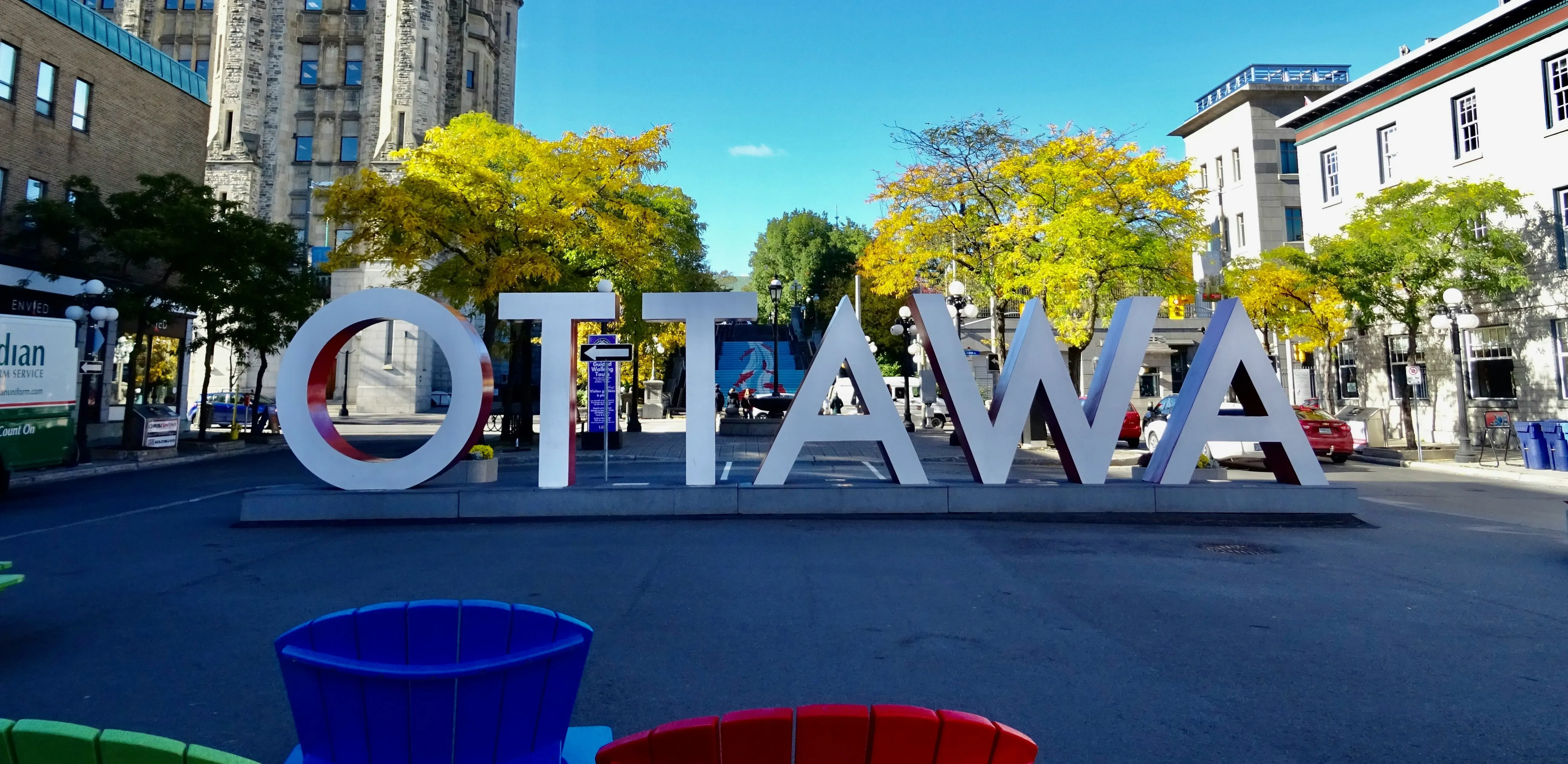
City Lifestyle
Ottawa strikes a refined balance between vibrancy and serenity. It’s a city where casual meets professional: tech meetups, cozy cafés, and leafy parks define daily life. The pace leans toward relaxed—early mornings around Confederation Park segue into evenings of cultural outings—yet productivity thrives under this calm.
Thanks to its high quality of life and manageable size, Ottawa appeals to both early risers and night owls alike. The city has seen a deliberate push toward energizing its nighttime scene. In fact, Ottawa appointed its first “night mayor,” Mathieu Grondin, to strengthen the nightlife economy and refresh the city’s reputation beyond its bureaucratic image. The Guardian
Cultural Highlights and Attractions
Ottawa is rich in heritage, arts, and lively public spaces:
- ByWard Market – A hub of farmers’ stalls, shops, and restaurants, this historic market pulses with energy day and night. Cobblestone squares, eateries, and lively vendors coalesce into one of Ottawa’s most iconic and social neighborhoods. Bon Appétit
- National Gallery of Canada, Canadian Museum of Nature, Bank of Canada Museum, and more—Ottawa’s museum scene is robust and varied. Whether you're into fine art, natural history, or financial archives, there’s something to intrigue every curious mind. Condé Nast Traveler
- Rideau Canal – A UNESCO World Heritage site that transforms with the seasons: ice skating in winter, kayaking or boat rides in summer—always scenic and diverse for leisure. Condé Nast Traveler
- Culinary exploration by bike – Cyclists can weave through canal paths and inner neighborhoods like Hintonburg and Old Hull, discovering hidden cafés and street food gems along the way. Bon Appétit
Popular Neighborhoods
Ottawa’s neighborhoods each have their own flair—some especially suited for tech professionals, families, or those seeking vibrant city life.
- Kanata – Often called "Silicon Valley North," Kanata is home to over 500 tech companies and is the prime hub for innovation. It’s highly family-friendly, with good schools like Earl of March Secondary and W. Erskine Johnston Elementary. Living in Ottawa
- Downtown / ByWard Market Area – Central and walkable, this area brings together government, finance, retail, and culture. Ideal for those who thrive in urban settings with easy access to attractions and workplaces. Living in Ottawa
- Bayview Yards – This innovation-driven neighborhood is the incubator of Ottawa’s start-up scene and a hive of tech accelerators and entrepreneurial activity. Living in Ottawa
- The Glebe – A historic and family-centric neighborhood south of downtown. The Glebe is community-focused with a charming main street along Bank Street, parks, and events like the Great Glebe Garage Sale and proximity to the Rideau Canal’s scenery. Wikipedia
- Westboro – Known for its trendy boutiques, murals, and connection to outdoor life—river trails and recreation are just steps away. Bus and transit accessibility make it a lively and connected neighborhood. Wikipedia
- Hintonburg – A creative enclave with galleries, artist spaces (known as The QUAD), and community cultural events like ArtsPark. It’s also transit-friendly, with several O‑Train stations and bus lines nearby. Wikipedia
- Barrhaven – A large, suburban district rapidly growing in population, Barrhaven is popular among families. It’s home to multiple schools, parks, and community amenities, though commute times into the downtown core are longer. Wikipedia
3. Cost of Living
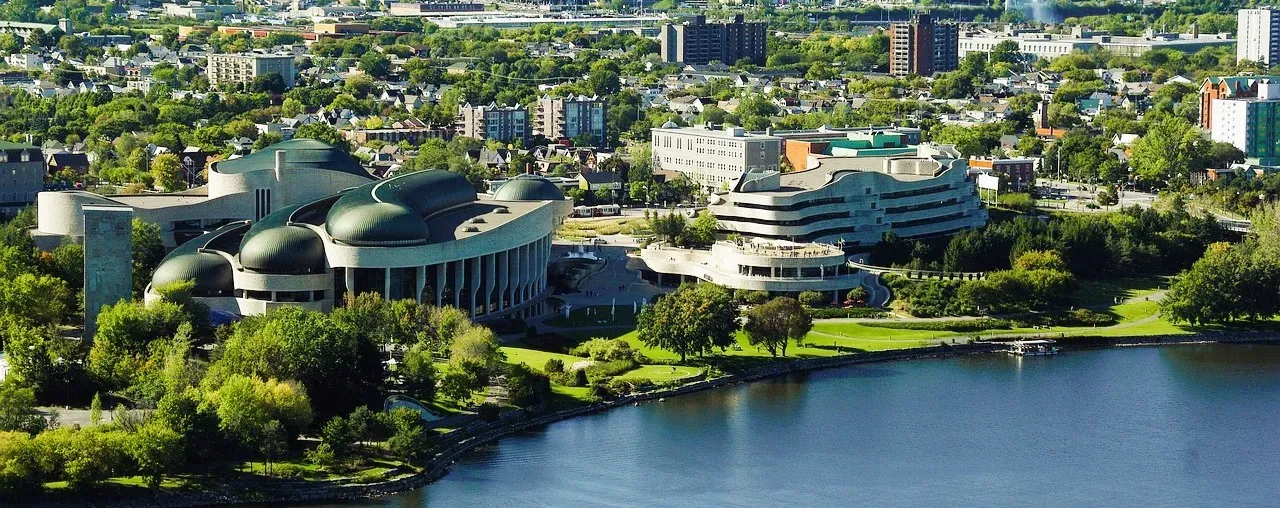
Ottawa offers a high quality of life without the sky-high costs found in cities like Toronto or Vancouver. While prices have crept up in recent years, Ottawa remains relatively affordable, especially for those in tech and professional sectors with higher-than-average incomes.
Breakdown of Major Expenses
Housing
Rent is a major component of living in Ottawa, but it’s still a step down from the national giants.
- A 1-bedroom apartment in the city center will cost around $2,032.93 CAD per month.
- In outer neighborhoods, that same apartment drops to about $1,715.38 CAD.
- Need more space? A 3-bedroom apartment in the center averages $3,136.82 CAD, while outside the core, it's about $2,574.74 CAD.
- Buying property? The average home price in Ottawa sits at around $648,900 CAD, with condos in the city center costing roughly $6,931.90 CAD per square meter (CREA & Numbeo).
Utilities
Cold winters mean heating bills are no joke. For an average 85–90m² apartment, monthly basic utilities cost about $239.39 CAD. Add internet, and you're looking at $310.61 CAD/month total (Numbeo).
Food & Groceries
Grocery prices in Ottawa are reasonable, and many basics like milk, eggs, produce, and meats are exempt from tax.
Here are sample prices:
- 1L of milk: $3.19 CAD
- Dozen eggs: $4.31 CAD
- Chicken breast (1kg): $17.52 CAD
- Apples (1kg): $5.82 CAD
- Loaf of fresh bread: $3.74 CAD
The average monthly grocery bill is estimated at $860.81 CAD per person (Numbeo, calculated for a 2,000-calorie diet).
Eating Out
-
Inexpensive meal: $25 CAD
-
Mid-range dinner for two: $100 CAD
-
Coffee (cappuccino): $5.32 CAD
-
Beer (domestic pint): $8 CAD
Dining out is a common social pastime, but it adds up quickly, budget accordingly if you're a foodie.
Transportation
Ottawa’s OC Transpo system (buses + O-Train) is effective and widely used.
- One-way adult fare: $3.80 CAD
- Monthly adult pass: $128.75 CAD
- Gasoline: Around $1.49 CAD/liter
OC Transpo is reliable for commuting, especially from suburbs like Kanata or Barrhaven (OC Transpo).
Healthcare
Basic healthcare is covered under Ontario’s OHIP, but many opt for private plans:
- Employer-sponsored plan: $63 CAD/month
- Private health insurance: Ranges from $61 to $196 CAD/month
This ensures coverage for dental, vision, and prescriptions not included in OHIP
Entertainment & Fitness
- Gym membership: $63.29 CAD
- Cinema ticket: $15 CAD
- Taxi for 1 hour: Around $45 CAD
- Weekend restaurant and outing budget: $120 CAD/month
Ottawa offers a range of free and low-cost outdoor options, from Gatineau Park hikes to skating the Rideau Canal in winter.
Comparison
Compared to other cities:
- Ottawa is 4.9% more expensive than Barcelona (excluding rent) but 8.4% cheaper in rent (Numbeo).
- It remains far more affordable than Toronto or Vancouver, particularly in housing and childcare.
In total, a single person in Ottawa can expect to spend approximately $3,262 CAD/month, while a family of four might spend $5,316 CAD/month, excluding rent.
4. Average Salaries in Tech
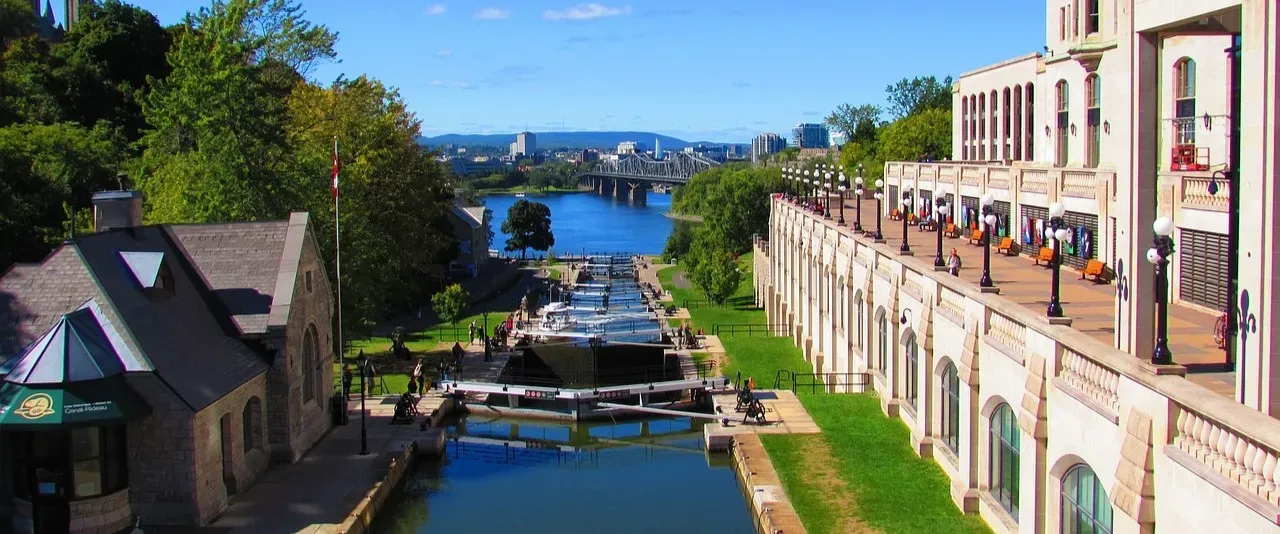
In Ottawa’s dynamic tech landscape, compensation tends to be competitive, well above many general income levels, reflecting the city’s strong public‑sector base and burgeoning innovation scene.
Salary Overview: General and Tech Roles
- Average Base Salary (all sectors): Approximately C$70,000 per year in Ottawa
- Overall average annual salary: C$64,995, translating to around C$5,416/month (about C$31/hour)
This suggests that tech salaries in the region typically sit above the citywide norm.
Salaries by Tech-Related Function (Payscale)
Here are representative averages for key professional roles in Ottawa:
- Software Developer: C$78,221
- Software Engineer: C$87,304
- Senior Software Engineer: C$116,584
- Project Manager: C$79,474
- Administrative Assistant: C$45,404 (included for context, outside of tech)
These figures highlight the tiered progression, from junior to senior roles, common in tech, with senior engineers earning well into six figures.
Specialized Role Insight: Financial Analyst
While not strictly tech, financial roles often intersect with tech through fintech or analytics:
- Financial Analyst in Ottawa: C$62,655 per year, with a typical range of C$47,000 to C$85,000 including bonuses
Regional Focus: Ottawa–Kanata
Considering Ottawa–Kanata—a hub that includes "Silicon Valley North"—average compensation jumps:
- Average salary in Ottawa–Kanata: C$88,000 per year
This underscores how tech-rich areas in and around Ottawa offer more generous pay.
How This Lands for Tech Professionals
- Entry-level tech roles (e.g., Software Developer) typically start at C$78K, about 10–20% above citywide averages.
- Mid- to senior-level engineers can expect C$87K–C$116K, particularly in Ottawa–Kanata.
- Project Managers often align with developer salaries, averaging C$79K.
- Tech-adjacent roles like Financial Analyst earn C$62K—solid but below core tech roles.
- Working in Ottawa–Kanata notably increases pay potential—C$88K on average across roles.
5. Family-Friendliness in Ottawa

Ottawa is widely recognized as a family-friendly city that beautifully balances urban conveniences with natural beauty and inclusive community resources.
Childcare & Early Learning
- The City of Ottawa operates a network of licensed municipal childcare centres serving children aged 18 months to five years. Many are part of the Canada-Wide Early Learning and Child Care (CWELCC) system, offering bilingual (English and French) programs with nutritious meals and enrichment activities. Subsidies and highly transparent waitlist applications are managed through the Ottawa Child Care Registry. ottawa.ca
- Schools under the Ottawa-Carleton District School Board (OCDSB) run Early Learning Centres that deliver structured, high-quality toddler and preschool care. These are also licensed under provincial standards, with subsidized options available based on caregiver eligibility. ocdsb.ca
- Organizations like Mothercraft Ottawa expand options with full-time, part-time, and casual childcare for children aged 6 weeks to 12 years—across home-based or centre-based settings. Mothercraft also offers robust parenting support, including EarlyON child and family programs, prenatal workshops, and community classes. mothercraft.com
- For families seeking more nature-based, child-led learning, the Ottawa Forest and Nature School provides unique outdoor education. Children explore and learn through inquiry-based play rooted in nature, with programs that emphasize connection to land and community relationships. Andrew Fleck Children’s Services
Parenting & Family Support Services
- Family Services Ottawa (FSO) has been supporting families for over 100 years. They offer counselling, educational workshops, and support programs addressing mental health, parental stress, and other family-related challenges. Many services are subsidized or offered on a sliding-scale basis—some even free. Family Services Ottawa
- Free and high-quality EarlyON centres offer drop-in programs tailored to caregivers with young children (birth to age six). These safe, engaging spaces provide play groups, networking for parents, and early childhood learning resources. ocdsb.ca
Schools & Educational Options
- The OCDSB operates over a hundred elementary and secondary schools offering diverse programming; regular, alternative, French immersion, and gifted programs. It is one of Ontario’s largest school boards, providing strong educational infrastructure across the city. Wikipedia
- CHEO School offers a therapeutic, bilingual kindergarten program for children with complex physical or medical needs, housed within the Children’s Hospital of Eastern Ontario. cheo.on.ca
Healthcare Access
- Families in Ottawa benefit from a strong public healthcare system—OHIP covers primary care, while specialized services are available across major hospital systems.
- The Children’s Hospital of Eastern Ontario (CHEO) is a premier pediatric center offering emergency care, inpatient services, research, and outreach across eastern Ontario and beyond. Recognized for excellence, it serves as a lifeline for families in medical need. Wikipedia
- Other hospitals like Ottawa General Hospital and Ottawa Civic Hospital offer comprehensive care, including rehabilitation, cardiac services, trauma, and emergency. Wikipedia
- Queensway Carleton Hospital, located in west Ottawa, provides full-service acute care including maternity, mental health, and surgical services, earning a reputation for high-quality emergency and specialized care. Wikipedia
Recreation, Parks & Community Life
- The City of Ottawa offers a plethora of recreation programs, camps, sports, and fitness classes across its parks and community centres, from cycling and swimming to fitness drop-ins and seasonal activities. ottawa.ca
- With expansive natural spaces, trail networks, and outdoor festivals like ice skating on the Rideau Canal or summer paddle-boarding, Ottawa provides endless opportunities for families to play, connect, and explore.
6. Relocation Resources
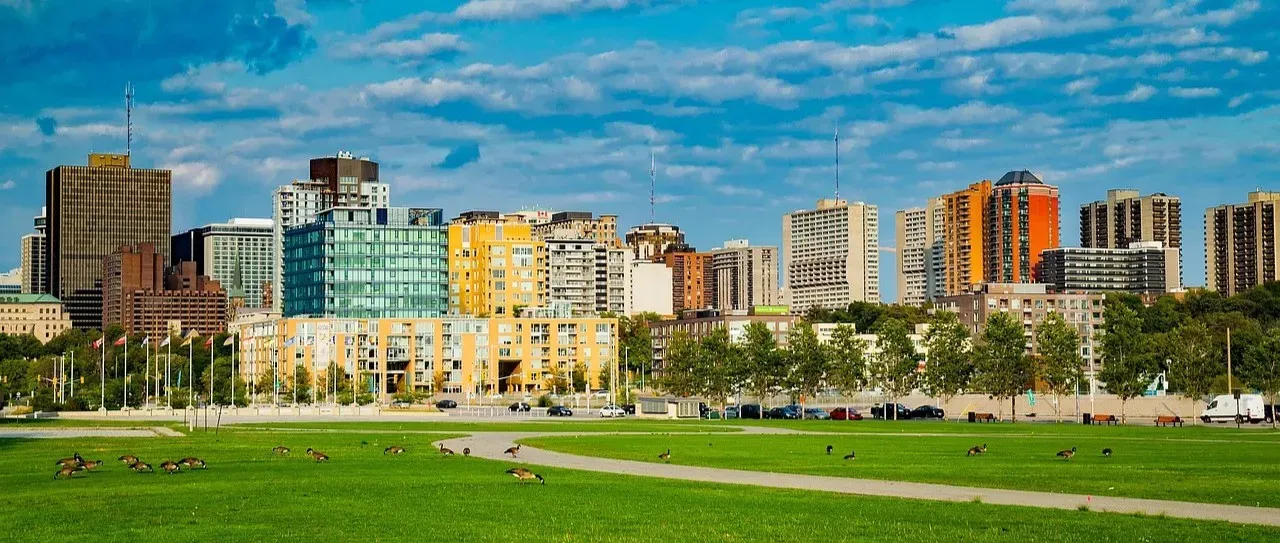
Relocating to Ottawa is a strategic move—for your career and quality of life—but like any city shift, knowing where to find housing and professional moving help makes all the difference. Below is a list of trusted short-term rental platforms and full-service relocation agencies to help you get started.
Housing and Short-Term Rentals
Whether you’re seeking a furnished apartment to get settled, or something flexible for scouting permanent housing, Ottawa has plenty of short-term rental options. Here are some of the best platforms to browse:
-
Rentals.ca – Short-Term Rentals in Ottawa
A comprehensive map-based platform with a strong selection of furnished short-term apartments, houses, and condos. Filters for price, size, and neighborhood make it ideal for those planning an extended stay while looking for a long-term lease.
-
This comparison site aggregates listings from various sources, including Airbnb, Vrbo, and Booking.com. It’s useful for finding weekly apartment rentals with real-time availability and side-by-side pricing.
-
Airbnb – Monthly Rentals in Ottawa
Ideal for remote workers or digital nomads, Airbnb’s monthly listings come fully furnished and include amenities like Wi-Fi and kitchen access, helping you transition to Ottawa without the pressure of a long lease.
-
Offers over 1,600 listings in Ottawa for short and medium-term stays. Ideal if you’re visiting for a few weeks while hunting for a permanent apartment. Prices often reflect seasonal deals or last-minute availability.
-
Caters to business travelers and relocating professionals. These are luxury-level furnished apartments with concierge-level service. Best suited for corporate or government relocation packages.
Note: According to the City of Ottawa, hosts of short-term rentals must be licensed. Ask your landlord or host if their unit is legally registered.
Relocation Agencies & Moving Services
Need help packing, shipping, or just navigating the move itself? These Ottawa-based relocation companies provide full-service support:
-
Crown Relocations – Ottawa Office
Internationally known and locally active, Crown handles household packing, customs clearance, storage, and even pet transport. They also offer relocation orientation and language training if you're arriving from abroad.
-
Originally established for military and RCMP transfers, they now serve government and corporate clients. Their services include home-finding assistance, school registration guidance, and full family relocation packages.
-
Antilia Homes – Bespoke Relocation Services
Tailored for executive relocations, this boutique service goes beyond the basics. They help with everything from storage and real estate setup to doctor referrals and driver's license registration.
-
RE/MAX Affiliates – Relocation Services
With decades of local real estate experience, this agency provides customized relocation planning, including neighborhood tours, home search support, and settling-in services for individuals and families.
7. Job Market and Taxes
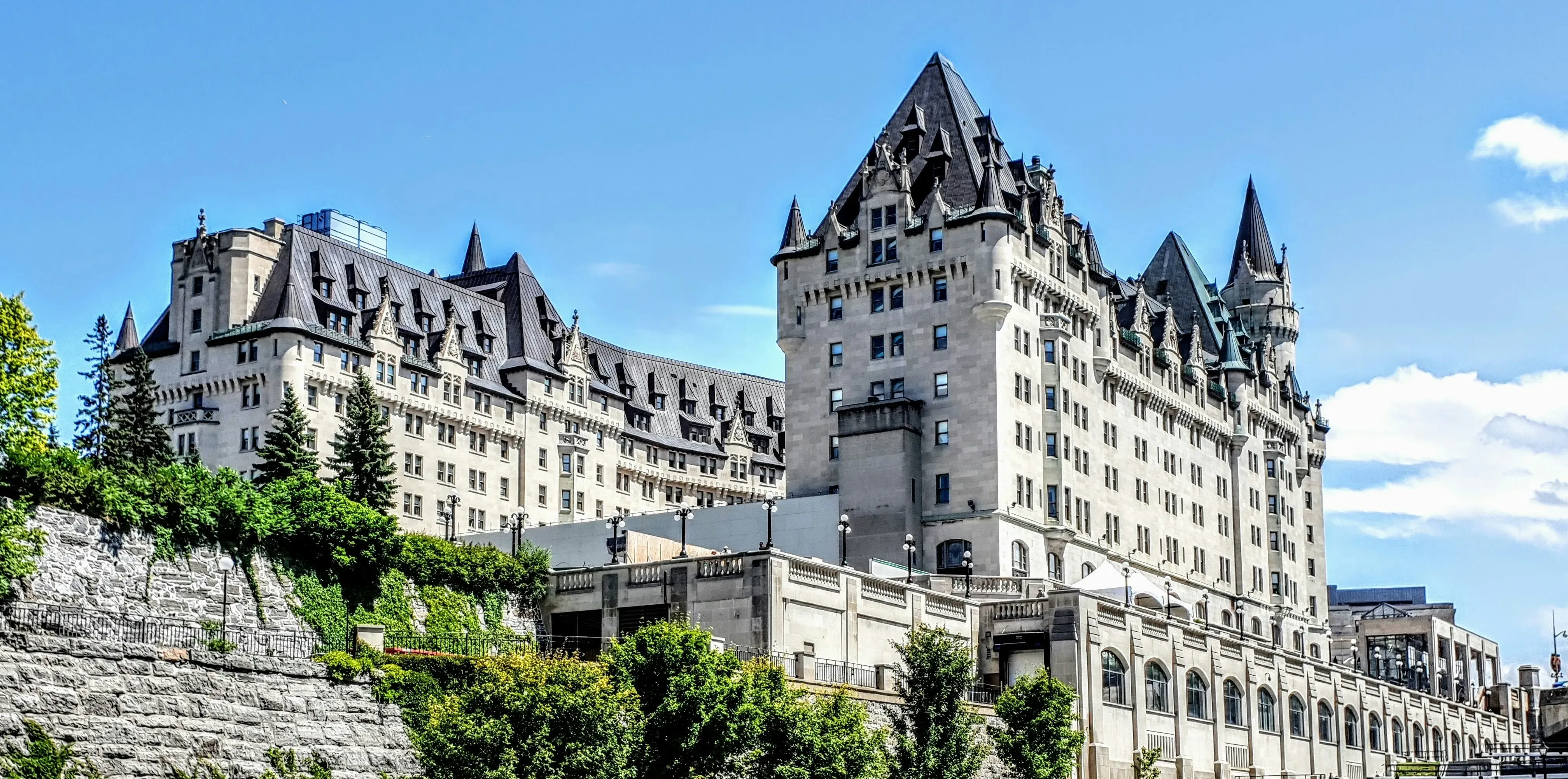
Current Job Openings
Ottawa’s job market is fueled by a powerful mix of government, high-tech, clean energy, defence, and innovation sectors. The city is particularly attractive for professionals in:
- Software development and engineering
- AI and machine learning
- Cybersecurity and cloud computing
- Project and product management
- Telecommunications and smart mobility
- Digital health and biotech
With Kanata North serving as the heart of “Silicon Valley North,” you’ll find major employers like Shopify, Nokia, Ericsson, and Mitel actively hiring across disciplines.
To explore current openings in Ottawa's tech scene, head directly to:
👉 Browse Tech Jobs on TieTalent
This platform connects top tech talent with companies across Canada and Europe, match with roles based on your skills, not just your CV.
Income Tax Overview in Ontario
If you’re moving to Ottawa, you’ll fall under Ontario’s provincial tax structure, in addition to Canada’s federal tax system. Together, these determine how much of your income you’ll take home.
In Ontario, income taxes are deducted automatically from your salary and cover services like healthcare (OHIP), public education, infrastructure, and social programs.
Quick breakdown of what’s deducted:
- Federal income tax: Ranges from 15% to 33%
- Ontario provincial tax: Ranges from 5.05% to 13.16%
- Canada Pension Plan (CPP) and Employment Insurance (EI) premiums are also automatically withheld.
Your effective tax rate will depend on your salary, deductions, and benefits (e.g. RRSPs or employer-subsidized health insurance).
TieTalent: Where Teams Are Formed. Join for Free!